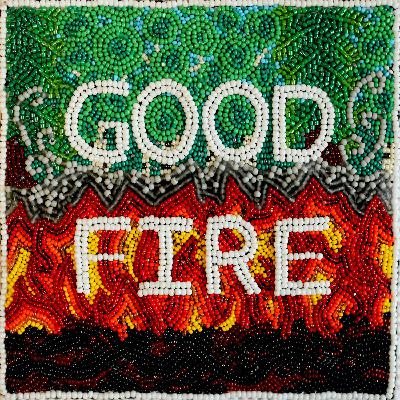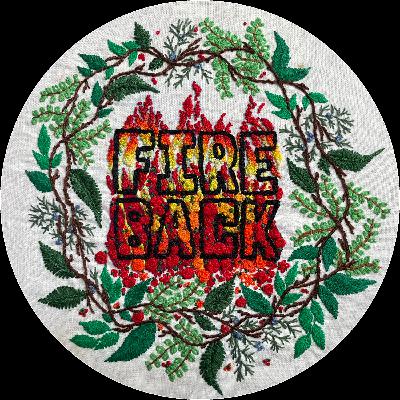Accomplices: Special Episode with Alex Zahara
Description
Accomplices: Special Episode with Alex Zahara
Episode highlight
In this episode, Alex Zahara talks about how a non-Indigenous person can be a good ally and accomplice to Indigenous peoples in Canada.
Resources
Accomplices Not Allies: Abolishing the Ally Industrial Complex
Breathing Fire into Landscapes that Burn: Wildfire Management in a Time of Alterlife
Otherwise Worlds: Against Settler Colonialism and Anti-Blackness by Tiffany Lethabo King
Centering Indigenous voices: The role of fire in the Boreal Forest of North America
Sponsors
The Canadian Partnership for Wildland Fire Science
Indigenous Leadership Initiative
Quotes
17.44 – 17.52: “This is actually the first time in Canadian history when the Notwithstanding Clause was used to suppress the charter rights of children.”
22.42 - 22.48: “These attacks… on trans rights are also an attack on Indigenous rights.”
1.14.54 - 1.15.10: “When I’m thinking about how do I be a settler and how do I… settle, I do think that there are ways of… living together in a way that doesn’t emphasize conquest and that just emphasizes… sharing.”
Takeaways
The gathering place (06.06)
Alex Zahara is a non-Indigenous researcher in Kistahpinanihk, which means the Great Meeting Place, also known as Prince Albert in Treaty 6 territory, the Metis Homeland and the Homeland of the Dakota. He works out of the Northern Forestry Centre as a fire research scientist for the Canadian Forest Service and believes his location informs his research approach. Prince Albert, located along the northern Saskatchewan River is where prairies and agricultural land in the south roll into boreal forests in the north, giving summer thunderstorms and fire, and has been home to many First Nations.
A place of community (10.30)
As a settler, Alex often thinks about what his role is in Indigenous fire stewardship. “I have a lot of obligations to people who have been here before and currently, and… [I am] also folded into different agreements that were already in place”, he notes. As a gay man, he also thinks about others in the queer community, so being a settler for him means centering two-spirit and trans people, especially in the light of recent anti-trans legislation. As a researcher, he wrestles with accusations on teachings in the light of parent rights, with only some gender ideologies being aligned with inherent human and treaty rights.
Misgendering and outing (13.09)
Alex explains how the legislation came to be, when Planned Parenthood pamphlets were left in a Saskatchewan classroom containing inappropriate information. The following week, the government pot forth new legislation banning third parties from teaching sex education and restricting gender pronoun use, making it mandatory for people under 16 to get parental consent to go by a different gender or pronoun in the classroom. Without parental consent, teachers and classmates are then forced to misgender, which leads to negative health outcomes, while an outing could be dangerous for some.
Taking away children’s rights (15.34)
The University of Regina Pride Center requested an injunction on the legislation that required gender-diverse youth to either remain misgendered or be outed, since it is likely to cause irreparable harm. While it was first accepted, Saskatchewan used the Notwithstanding Clause, allowing them to overwrite certain aspects of the Charter of Rights and Freedoms. This clause was added when the constitution was created since some provinces wouldn’t sign up for it without one. Alberta followed and has proposed medical restrictions too. Prince Albert, where Alex is from, is 50% Indigenous, including 2-Spirit people.
Violation of 2-Spirit Rights (19.25)
Alex highlights that being 2-Spirit is an Indigenous right, so the usage of the Notwithstanding Clause is being disputed because it cannot be used to suppress Indigenous rights. Treaty agreements, especially in Treaty 6, include the right to healthcare, which includes having access to medical support. The provincial government is also obligated to upload the inherent rights to cultural expression. However, the gender ideology being professed by the government is a binary nuclear family, which doesn’t align with Indigenous cultural worldviews.
Reclaiming Indigenous culture (21.37)
Alex finds it heartening going to Pride celebrations and observing Indigenous youth exercise their right to be 2-Spirit peoples, “which is particularly important after residential schools, where… rigid gender ideologies were enforced on people”. He acknowledges that folks from Prince Albert Pride have been working hard to put statements out and organize activities for advocacy, emphasizing how this is an Indigenous rights issue along with being a queer rights issue. He laments that the cis-white men understanding of queer rights is limited to marriage, whereas there are more issues underneath.
Cultural safety (25.26)
Alex mentions the work done by Amy on cultural safety in Indigenous fire management, particularly trans people. Many trans people have stopped being firefighters because the firefighting culture lacks acceptance. So, he emphasizes inclusivity and creating safe spaces for queer and trans folk in all the work he does. However, in a province where nobody’s identity is affirmed till they are over 16, trans adults in fire management “have to end up starting a few steps back, because they didn’t get to be who they were, and come into themselves until much later”.
Accomplices vs. Allies (30.35)
Alex was introduced to an article, Accomplices Not Allies, by his PhD advisors, which influenced how he thought about research. He read it often to understand the differences between allies and accomplices. For him, an accomplice is willing to lose privilege and access to power. He compares that to how straight people are expected to walk in front of a Pride Parade, protecting the crowds behind them. He talks about Audrea Simpson’s politics of refusal, where Indigenous Nations insist on the Integrity of self-governance and refuse citizenship of the colonial state.
Truth and reconciliation (36.43)
Alex encourages settlers to not only learn the truth about Canada’s history but also do the work on reconciling. He mentions how the Muskrats to Moose Project, which both Amy and Alex are involved with, is working towards this cause. They try to bring different groups of people together to learn about the importance of fire on the land in supporting the ecosystem, cultural landscape and economies. A large invasive king grass species grows very tall and does not provide a good home for muskrats, so burning helps maintain the habitat to sustain this species.
Accomplice as an identity (39.52)</stro
















